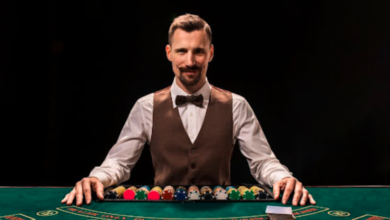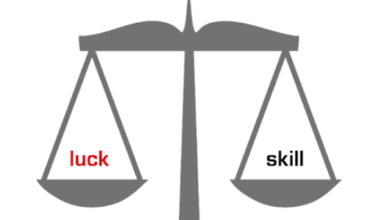The Art of Decision-Making: How High-Stakes Choices Shape Our Future

Life is a series of decisions. Some are small—what to eat for lunch, what to watch on TV. Others can change everything. The ability to make the right call under pressure is what separates top performers from everyone else. Whether in business, sports, or even gambling, the best decision-makers don’t just rely on luck. They analyze, adapt, and act with confidence.
So, what makes a great decision-maker? And how do people handle high-pressure choices when the stakes are high? Let’s break it down.
The Science Behind Decision-Making
Our brains process decisions in two ways: fast and instinctive or slow and analytical. Psychologists call this dual-process theory.
- System 1 (Fast Thinking): This is the gut reaction—instant, automatic, and often based on experience. Athletes use this when reacting to an opponent’s move.
- System 2 (Slow Thinking): This is the deep, logical thought process. Investors, business leaders, and strategists rely on this to weigh risks before making big choices.
High-pressure decisions often require both. A poker player, for instance, needs to quickly read an opponent’s bluff (System 1), but also calculate odds and manage their bankroll wisely (System 2).
Decision-Making in Business: Risk vs. Reward
Entrepreneurs and CEOs make high-stakes decisions daily. Where to invest, when to expand, or even when to pivot an entire business model. These calls can make or break a company.
Take Jeff Bezos. When Amazon started, he faced the choice of playing it safe as an online bookstore or expanding aggressively into other markets. His decision to take risks, even at a loss, turned Amazon into a global powerhouse.
Investors follow a similar pattern. They don’t throw money into random stocks—they analyze market trends, assess risks, and make calculated moves. The same principles apply in gambling. Professional players on best slot sites don’t just spin without thought; they manage their bets, set limits, and play with a strategy.
Split-Second Decisions in Sports
In sports, decisions must be made in the blink of an eye. A fighter reading an opponent’s movement, a quarterback deciding where to throw, a soccer player choosing whether to pass or shoot—every choice affects the outcome.
Michael Jordan, one of the greatest basketball players of all time, was known for his ability to make the right decision under pressure. He didn’t just take every shot himself; he knew when to pass, when to attack, and when to slow the game down.
Similarly, in combat sports, fighters like Israel Adesanya rely on split-second decision-making. They read feints, anticipate counters, and adjust their strategy mid-fight. A hesitation or wrong move can mean the difference between victory and defeat.
Read also: advantages of rent a car elizabeth nj for blog
The Role of Probability and Strategy in Gambling
Gambling isn’t just about luck—it’s about understanding probability, strategy, and risk management. Whether playing poker, betting on sports, or engaging with best slot sites, smart players don’t rely on blind luck. They study patterns, track odds, and make informed bets.
Poker players, for example, must assess every hand carefully. Should they fold, call, or go all-in? The best players don’t let emotions dictate their choices. They calculate the risks and rewards, adjusting their play accordingly.
Casinos themselves are masters of decision-making. They set odds and game mechanics to balance risk while keeping players engaged. They understand human psychology, making sure their games are designed to maximize participation while ensuring profitability.
Overcoming Decision Paralysis
One of the biggest obstacles in high-pressure decision-making is paralysis by analysis. When faced with too many options, people often freeze, afraid of making the wrong choice.
To overcome this:
- Simplify the Options – Too many choices create hesitation. Narrowing decisions down to a few clear options makes it easier to act.
- Set a Time Limit – Some of the best decisions are made quickly. Deadlines force action and prevent overthinking.
- Trust Experience – The more experience you have, the better your instincts. That’s why seasoned traders, athletes, and gamblers react faster and more effectively.
The Psychological Side of Decision-Making
Fear of failure often leads to hesitation. But great decision-makers embrace risk. They don’t fear mistakes—they learn from them.
Think of a fighter coming off a tough loss. Do they let it shake their confidence, or do they analyze what went wrong and come back stronger? The best competitors view failure as data. They adjust, refine, and improve.
The same applies to business and gambling. If an entrepreneur’s first venture fails, they don’t quit. They reassess, find the flaws, and try again. Similarly, responsible gamblers on best slot sites understand that losses are part of the game. They don’t chase losses—they manage their bankroll, adjust their strategy, and keep their emotions in check.
Final Thoughts: The Power of Smart Choices
Decision-making is an art. Whether it’s a CEO making a billion-dollar move, an athlete adjusting mid-game, or a gambler making a strategic bet, the ability to stay composed under pressure is what separates the best from the rest.
The key isn’t to avoid risk—it’s to understand it. Smart decision-makers don’t act on impulse; they gather information, trust their instincts, and take calculated chances. Because in the end, the people who make bold, informed choices are the ones who shape the future.




